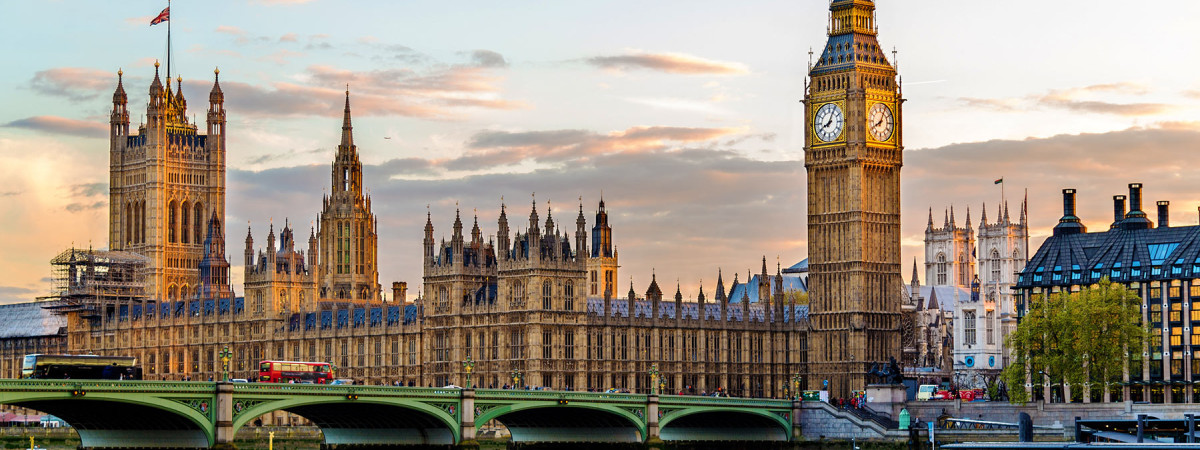
Photo by Leonid Andronov on iStock
2024 is going to be a pivotal year for sustainability in the UK. After a turbulent few years in British politics, dominated by Brexit and Covid-19, the general election, which must take place by the end of the year, provides an opportunity for the incoming government to reassert UK leadership in sustainability.
With economic growth likely to be a key issue in the election—and the parties still considering their policies on new sustainability regulation—leaders based in or with operations in the UK can play a role in making the business case for sustainability, calling for all political parties to ensure that the UK does not slip behind other jurisdictions but, instead, takes a world-leading position.
In the years since the last general election in the UK, there has been an exponential growth of regulation for sustainable business in many parts of the world (see BSR’s recent FAQ on Laws and Regulations for Just and Sustainable Business). At the forefront of this trend is the European Union (EU), where a plethora of new regulations—including mandatory human rights and environmental due diligence, new reporting and disclosure requirements, and technology-focused human rights risk assessments—is setting new global standards and expectations on companies.
Instead of adopting comparable regulations, the UK government, since 2019 (under all three Prime Ministers), has been explicit in its desire to diverge from EU regulations to maximize the “benefits of Brexit.” In many cases, that divergence has focused either on deregulation or declining to regulate in new areas where the EU has decided to do so. Worryingly, this includes sustainability issues where, for example, the government has said that it will not adopt mandatory human rights or environmental due diligence requirements.
Where the UK is Today
Prior to Brexit, the UK was often ahead of its EU counterparts in many aspects of sustainability-focused regulation, with the Companies Act 2006, the Modern Slavery Act 2015, and the Equality Act 2010 (Gender Pay Gap Information) Regulations 2017 setting out requirements for large companies concerning issues such as environmental and human rights reporting, tackling slavery and forced labor, and transparency around gender pay gaps.
Since then, there has been little in the way of further sustainability-focused regulation (save for new climate-related financial disclosure requirements, which came into force in 2022 for certain companies and limited liability partnerships and are based on the recommendations of the Task Force on Climate-Related Financial Disclosures).
When compared to other areas where the EU has led the way, the UK has been clear that it does not intend to follow suit. As noted above, the government is not following the EU’s lead in legislation to require mandatory human rights or environmental due diligence requirements, and nor does it intend to adopt new regulations of AI, a technology whose potential impacts on human rights are significant (instead, the UK is taking a “pro-innovation approach”). And while the Digital Services Act requires online platforms to undertake systemic risk assessments to determine their impacts on human rights, the UK’s Online Safety Act, which recently came into force, contains no equivalent measures.
In short, the UK is falling behind when it comes to sustainability-focused regulation. Not only could sustainability efforts among UK companies stall, but the ripple effect across the world that new types of regulation can generate (e.g., by incentivizing companies to ensure that their partners and suppliers across the value chain improve their efforts) could also be undermined. This could mean upstream adverse human rights impacts left unchallenged, UK consumers left more vulnerable to human rights-related risks, and efforts to tackle climate change (already far behind what they need to be) plateauing.
Why 2024 is a Critical Year
It is unlikely that the UK’s approach to sustainability-focused regulation will change under the current government before the next general election. However, the UK will see a general election before January 2025, providing an opportunity for a newly elected government to take a different approach.
There are certainly signs that the different political parties are, for the first time, thinking through this issue as they develop their manifestos and plans if elected. The Labour party (currently leading in the polls) has hinted at greater alignment with EU standards, with Keir Starmer recently saying that he did not want to see divergence on issues like environmental standards, food standards, and workers’ rights. The Liberal Democrats have said that they support mandatory due diligence for companies, while the Conservatives have not yet announced specific positions in this area, but remain publicly committed to achieving the UK’s net-zero targets, and introduced many of the previous sustainability-focused measures listed above.
The outcome of the general election is likely to be critical for the future of sustainability regulation in the UK, with real potential to influence the new government’s agenda on the issue. Without clear leadership from the new government, the UK risks ending the decade falling further behind the rest of the world, with threats to human rights and the environment insufficiently addressed.
What Does This Mean for Business?
With the main parties in the UK currently considering their policy positions on sustainability regulation, businesses can call for all parties to ensure that the UK does not slip further behind other jurisdictions but should, once again, take the lead. With economic growth a key political issue, they can make the case as to why new regulations will be good for business. Many companies have been doing this already, with regular joint statements (such as this one from 2022) from leading UK companies and investors calling for mandatory human rights and environmental due diligence legislation. UK companies should continue to do so and use their relationships and leverage with political parties and politicians to ensure that commitments to regulate in this area are included in their manifestos.
At the same time, companies should not wait for regulation in the UK. Many of the UK’s largest companies already trade or have operations in the EU, meaning that they may fall within the scope of new EU regulations and be required to comply with them. But even where this is not the case, companies who are genuinely committed to respecting human rights and environmental protections should ensure that they keep up with their peers in the EU. Strong international standards in human rights, environmental protection, and other areas already exist, whether in the form of soft law, guidance, or best practices. Companies in the UK can look to these to ensure that, with or without regulation, they can lead the way in sustainability.
If you’d like to talk about your sustainability work in the UK, reach out to our UK-based team.
BSR’s latest sustainability insights and events straight to your inbox.
Topics
Let’s talk about how BSR can help you to transform your business and achieve your sustainability goals.








